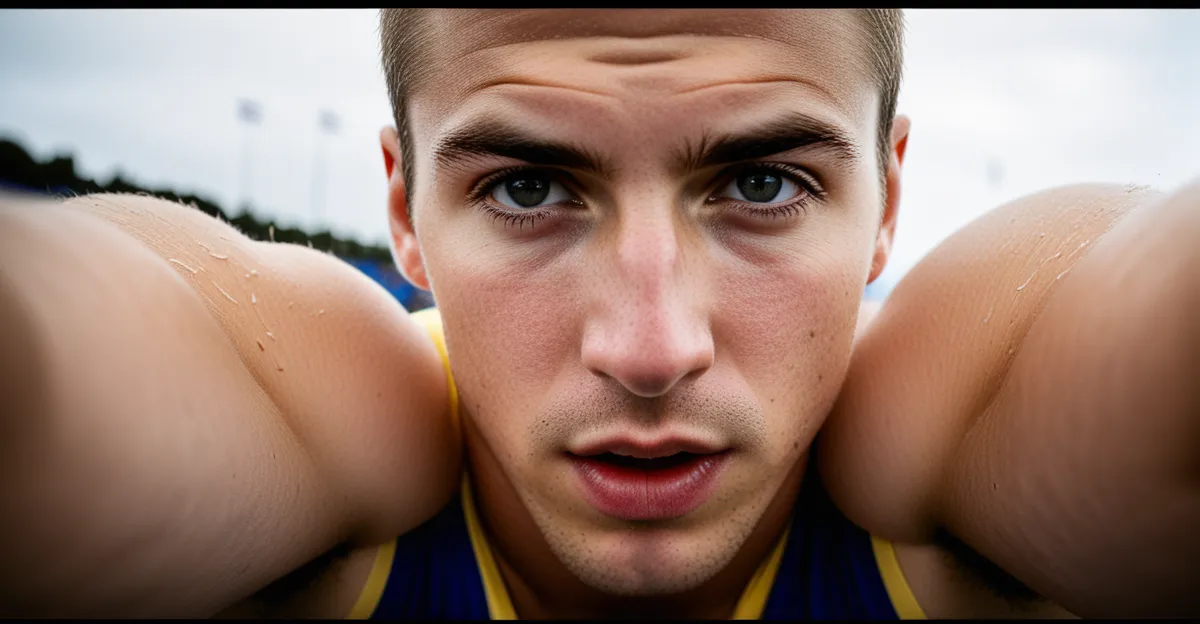Key Challenges Confronting Amateur Athletes in the UK
Amateur athletes in the UK face a range of key challenges that significantly influence their ability to perform and progress. One prominent issue is the limited access to training facilities and resources. Many athletes report difficulty finding local venues equipped with adequate facilities, often compounded by restricted opening hours and closures. This shortage creates a major barrier to consistent training, directly affecting performance.
Additionally, financial constraints act as a persistent hurdle. Without sufficient sports funding UK from sponsors or government bodies, many amateurs bear the personal cost of equipment, travel, and competition fees, making it hard to sustain their sporting commitments.
Also to read : What strategies are UK sports organizations using to increase youth participation?
Athletes also struggle with the demanding task of balancing sports with education and work, a dual career challenge that often forces compromises in training time and focus. The pressure to excel in multiple domains can impact motivation and progression. Organizations across the UK highlight these concerns, emphasising the need for enhanced support systems. Overall, UK athlete obstacles span financial, infrastructural, and personal spheres, necessitating a multifaceted approach to create equal opportunities for amateur sports participants.
Financial Constraints and Limited Funding
Financial support remains one of the most significant key challenges for amateur athletes UK, with amateur athlete financial struggle being a common and well-documented issue. Many athletes encounter persistent funding barriers, stemming from limited sports funding UK provided by both public and private sectors. This lack of sponsorship and government assistance compels athletes to cover personal expenses related to equipment, travel, accommodation, and competition entry fees.
Also read : What Key Challenges Do UK Sports Face Today?
Recent surveys indicate that a majority of amateur athletes in the UK spend substantial portions of their own income to maintain participation in their sport. For example, swimming or athletics amateurs often cite the high cost of specialized gear and transport to distant events as prohibitive. Because these expenses accumulate over time, they can deter talented individuals from pursuing further development or competing at higher levels.
UK sports organizations recognize this financial gap and stress the urgent need for increased funding programs. They argue that addressing these economic hurdles will reduce dropout rates and improve overall athlete retention. Tackling these amateur sports barriers comprehensively is essential to foster a more inclusive and competitive sporting environment nationwide.
Restricted Access to Training Facilities and Resources
Addressing the physical barriers to consistent training
Amateur athletes in the UK often face athlete facility access UK issues, one of the most pressing amateur sports barriers. Many report difficulty locating suitable local venues equipped with necessary equipment. This scarcity is worsened by frequent facility shortages and limited opening hours. When facilities close unexpectedly or operate at reduced times, athletes lose valuable training sessions, a setback to their progress.
Statistics show that over 40% of amateurs struggle with inadequate access to quality infrastructure, a figure corroborated by multiple UK sports bodies. The issue is especially acute in rural areas, where fewer venues exist and transport can be a challenge. Governing organizations emphasize that improving sports infrastructure challenges through investment and better management is vital to bridging this gap.
For amateur athletes, consistent access to training facilities is fundamental for skill development and conditioning. Without it, barriers to progression multiply, contributing to dropouts. Solutions being discussed include community partnerships and flexible scheduling. However, until access improves widely, the challenge remains a significant UK athlete obstacle hampering many promising sports careers.
Managing Dual Commitments: Sport, Education, and Work
Balancing sport, education, and employment presents one of the most demanding key challenges for amateur athletes UK. Many face tight schedules juggling training sessions with academic deadlines or work shifts. How does this affect their performance? Typically, compromised training time and increased fatigue reduce athletes’ potential to progress. Research reveals numerous dual career athletes report feeling stretched too thin, which can delay skill acquisition and cause burnout.
What solutions exist? Support systems, such as flexible university programmes or employer understanding, aim to ease this tension but are not universally accessible. In the UK, policies encouraging work-study-sport balance strive to offer tailored schedules, yet many amateurs find inconsistencies in support across regions and institutions.
The clash between sport and life commitments remains a persistent amateur sports barrier. Athletes often must prioritise immediate career or education needs at the expense of long-term sporting goals. To enhance progression and wellbeing, expanding comprehensive assistance and fostering awareness about this balance are crucial steps. Improved coordination between sporting bodies, educational institutions, and employers could significantly reduce this UK athlete obstacle.
Mental Health and Wellbeing Pressures
Addressing athlete mental health UK is critical, as amateur sports stress is a widespread issue impacting performance and personal life. Many amateur athletes grapple with anxiety linked to high expectations, intense competition, and social pressures, which compound existing UK athlete obstacles. Stress from juggling training, work, and education further strains wellbeing, leading to burnout or withdrawal from sport.
What are the main sources of mental stress? Common triggers include fear of failure, financial strain, and lack of support networks. These pressures can cause mood disturbances, reduced motivation, or even depression. Surveys highlight that a significant portion of amateur athletes feel inadequately supported regarding mental health.
Current initiatives focus on raising awareness and providing accessible mental health resources specifically tailored for athletes. Organisations promote open conversations to destigmatize mental health concerns and incorporate psychological support into training environments. Though progress exists, many athletes report inconsistent access to these supports.
Improving mental wellbeing in sport requires a sustained effort to integrate psychological care alongside physical training. Offering confidential counseling, peer networks, and mental skills coaching can mitigate stressors, empowering amateurs to thrive amid key challenges for amateur athletes UK.
Quality of Coaching and Talent Development
Examining coaching access and athlete growth
Access to qualified coaches remains a significant key challenge for amateur athletes UK. Many amateurs encounter difficulties finding experienced mentors, which impedes their skill development and reduces motivation. Coaching quality varies markedly across regions, with urban centres typically offering better resources than rural areas. This uneven distribution exacerbates amateur sports barriers, limiting opportunities for consistent progress.
Why does this matter? Skilled coaching directly influences technique refinement, injury prevention, and competitive performance. Insufficient guidance can stall an athlete’s development, preventing them from reaching their potential or transitioning to higher levels. UK sports bodies acknowledge this gap and promote enhanced development pathways amateur athletes to foster talent systematically.
Programs aimed at increasing coach availability focus on training and certification, but uptake is uneven. Without wider access to quality instruction, many athletes face stalled careers due to lack of expert feedback and support. Consequently, improving coaching standards is essential in removing a critical UK athlete obstacle, ensuring amateurs receive the necessary mentorship to thrive in competitive environments.
Competition and Progression Opportunities
Amateur athletes in the UK face significant amateur competition UK challenges that limit their chances to advance. A core key challenge for amateur athletes UK is the scarcity of frequent, accessible local and national sporting events. Many athletes report long waits between competitions or travel burdens to participate, which disrupts training rhythms and motivation.
What hinders progression? Limited event availability restricts exposure to high-level competition, narrowing athlete career pathways. Without regular competition, measuring performance improvements and gaining selection for elite platforms becomes difficult. This lack of competitive opportunities acts as a notable UK athlete obstacle, causing some to abandon ambitions prematurely.
Feedback from athletes emphasizes barriers such as costly entry fees, restrictive qualification rules, and uneven geographic distribution of events. Consequently, inclusion gaps persist, disproportionately affecting rural or financially constrained participants.
Sports organizations recognize these limitations and advocate expanding competition structures to create more inclusive, frequent events. Such measures could foster smoother transitions from amateur to professional levels, addressing critical amateur sports barriers linked to competition and athlete growth.


